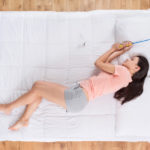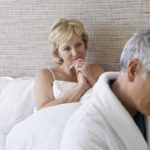1. Myth: Dementia is an inevitable part of aging.
Fact: “Dementia should be seen as a modifiable health condition and, if it occurs, should be followed as a medical condition, not a normal part of aging,” said Patricia Harris, MD, a geriatrician and associate professor at Georgetown University Medical Center. In other words, if you or your loved one becomes forgetful, it could be related to medication, nutrition or modifiable medical issues, she said. Don’t assume Alzheimer’s.
Just consider that when doctors examined the brain of a 115-year-old woman who, when she died, was the world’s oldest woman, they found essentially normal brain tissue, with no evidence of Alzheimer’s or other dementia-causing conditions. Testing in the years before she died showed no loss in brain function.
Not only is dementia not inevitable with age, but you actually have some control over whether or not you develop it.
“We’re only now starting to understand the linkages between health in your 40s, 50s and 60s and cognitive function later in life,” said Richard Powers, MD, who chairs the medical advisory board of the Alzheimer’s Foundation of America. Studies find that many of the same risk factors that contribute to heart disease—highblood pressure, high cholesterol, diabetes and obesity—may also contribute to Alzheimer’s and other dementias.
For instance, studies on the brains of elderly people with and without dementia find significant blood vessel damage in those with hypertension. Such damage shrinks the amount of healthy brain tissue you have in reserve, reducing the amount available if a disease like Alzheimer’s hits, Dr. Powers says. That’s important, he says, because we’re starting to understand that the more brain function you have to begin with, the more you can afford to lose before your core functions are affected.
One way to dodge the dementia bullet? Exercise your body and your brain. Physical activity plays a role in reducing the risk of diseases that cause Alzheimer’s. It also builds up that brain reserve. One study found just six months of regular physical activity increased brain volume in 59 healthy but couch-potato individuals ages 60 to 79. Other research finds people who exercised twice a week over an average of 21 years slashed their risk of Alzheimer’s in half.
Then there’s intellectual exercise. “I encourage regular intellectual stimulation,” says Dr. Powers. It doesn’t matter what kind, just that you break out of your comfort zone. Even writing letters twice a week instead of sending e-mail can have brain-strengthening benefits, he said. That’s because such novel activities stimulate more regions of the brain, increasing blood flow and helping to not only build brain connections, but improve the health of existing tissue.
2. Myth: If you didn’t exercise in your 20s, 30s and 40s, it’s too late to start in your 50s, 60s or 70s.
Fact: It’s never too late! In an oft-cited study, 50 men and women with an average age of 87 worked out with weights for 10 weeks and increased their muscle strength 113 percent. Even more important, they also increased their walking speed, a marker of overall physical health in the elderly.
3. Myth: Sex ends when you age.
Fact: A survey of 3,005 people ages 57 to 85 found the chance of being sexually active depended as much if not more on their health and their partner’s health than on their age. Women who rated their health as “very good” or “excellent” were 79 percent more likely to be sexually active than women who rated their health as “poor” or “fair.” And while fewer people ages 75 to 85 had sex than those 57 to 74, more than half (54 percent) of those who were sexually active had intercourse two or three times a month. Just remember: Sexually transmitted diseases do not discriminate based on age. If you’re not in a monogamous relationship, you or your partner should use a condom.
4. Myth: Getting older is depressing so expect to be depressed.
Fact: Again, says Dr. Harris, no way! “D****n is highly treatable. If older people could just admit to it and get help, they could probably live a much more active and healthy life.” That’s because studies find that older people who are depressed are more likely to develop memory and learning problems, while other research links depression to an increased risk of death from numerous age-related diseases, including Parkinson’s disease, stroke and pneumonia.
5. Myth: Women fear aging.
Fact: Not so! A survey conducted on behalf of the National Women’s Health Resource Center found that women tend to have a positive outlook on aging and to be inspired by others who also have positive attitudes and who stay active as they grow older. Women surveyed were most likely to view aging as “an adventure and opportunity” and less likely to view it as depressing or a struggle.
6. Myth: The pain and disability caused by arthritis is inevitable as you get older.
Fact: While arthritis is more common as you age, thanks to the impact of time on the cushiony cartilage that prevents joints and bone from rubbing against one another, age itself doesn’t cause arthritis. There are steps you can take in your youth to prevent it, such as losing weight, wearing comfortable, supportive shoes (as opposed to three-inch spikes), and taking it easy with joint-debilitating exercise like running and basketball. One study found women who exercised at least once every two weeks for at least 20 minutes were much less likely to develop arthritis of the knee (the most common location for the disease) than women who exercised less.
For more information visit us our website: https://healthcaretipshub.com







No Comment! Be the first one.